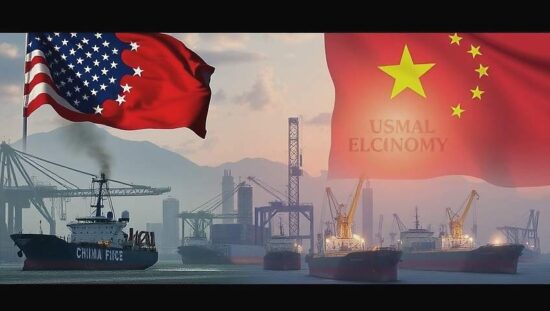The trade dispute between the US and China, fueled by President Donald Trump’s administration, has already had an impact on trade flows. According to official Chinese data from Sunday, China did not import any liquefied natural gas (LNG) or wheat from the United States in March. Last year, 17 percent of all Chinese wheat imports came from the US, while LNG accounted for five percent.
In response to the escalating customs announcements from the US, China has already imposed a 125 percent customs duty on all US goods. Meanwhile, Washington threatens to impose duties of up to 245 percent. The escalation in the trade dispute, which began in April, has already had serious consequences, as seen in the first quarter trade figures.
Other US imports, particularly in the agricultural sector, were also significantly affected in March. Cotton imports fell by 90 percent compared to the previous year, while corn imports reached their lowest level since February 2020. Soybeans are an exception, with imports increasing by 12 percent. China is the world’s largest importer of soybeans and relies on US supplies until the South American harvest becomes available in the spring.
Soybeans make up a large portion of China’s agricultural imports. Beijing aims to reduce dependence on foreign sources of this crucial foodstuff and plans to increase domestic production and harvest yields over the next decade to improve self-sufficiency. This will likely “hit American exporters and farmers who have long relied on China’s business” according to a report by the South China Morning Post.
China warns other countries against disadvantageous agreements with the US
In the customs dispute with the US, Beijing warned other countries against entering into disadvantageous agreements with Washington. The People’s Republic respects that all parties can resolve their economic differences with the US through consultations, according to the Ministry of Commerce in Beijing. However, China is strictly against any party reaching an agreement at the expense of China’s interests. “China will under no circumstances accept and will resolutely take countermeasures to the same extent” the statement continued.
The announcement was prompted by media reports suggesting that President Trump is pressuring other countries to limit trade with China in exchange for exemptions from US tariffs. Trump justifies his customs policy with perceived imbalances in trade figures and a desire to reindustrialize the United States.
However, geopolitical analyst Brian Berletic believes this is a pretext. Trump’s policy is “far from reindustrializing America or truly balancing the US trade deficit.” Instead, it aims to keep the US as the “dominant superpower of the world.” Therefore, Washington’s customs policy primarily seeks to isolate China as the world’s largest economic competitor in trade, according to the analyst.





